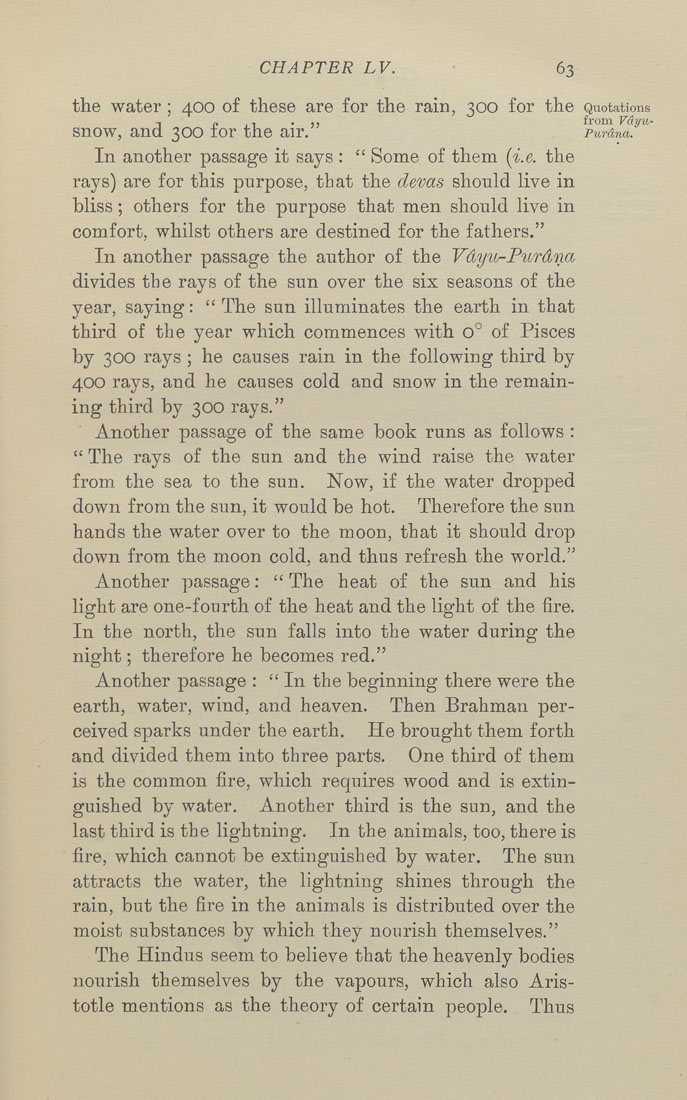CHAPTER LV. 63
the water ; 400 of these are for the rain, 300 for the Quotations
-, p j_i • ,, f™n^ Vdyu-
snow, and. 3 00 tor the air. Purdna.
In another passage it says : " Some of them (i.e. the
rays) are for this purpose, that the devas should live in
bliss; others for the purpose that men should live in
comfort, whilst others are destined for the fathers."
In another passage the author of the Vdyu-Purdna
divides the rays of the sun over the six seasons of the
year, saying: "The sun illuminates the earth in that
third of the year which commences with 0° of Pisces
by 300 rays ; he causes rain in the following third by
400 rays, and he causes cold and snow in the remain¬
ing third by 300 rays."
Another passage of the same book runs as follows :
" The rays of the sun and the wind raise the water
from the sea to the sun. Now, if the water dropped
down from the sun, it would be hot. Therefore the sun
hands the water over to the moon, that it should drop
down from the moon cold, and thus refresh the world."
Another passage: " The heat of the sun and his
light are one-fourth of the heat and the light of the fire.
In the north, the sun falls into the water during the
night; therefore he becomes red."
Another passage : "In the beginning there were the
earth, water, wind, and heaven. Then Brahman per¬
ceived sparks under the earth. He brought them forth
and divided them into three parts. One third of them
is the common fire, which requires wood and is extin¬
guished by water. Another third is the sun, and the
last third is the lightning. In the animals, too, there is
fire, which cannot be extinguished by water. The sun
attracts the water, the lightning shines through the
rain, but the fire in the animals is distributed over the
moist substances by which they nourish themselves."
The Hindus seem to believe that the heavenly bodies
nourish themselves by the vapours, which also Aris¬
totle mentions as the theory of certain people. Thus
|








